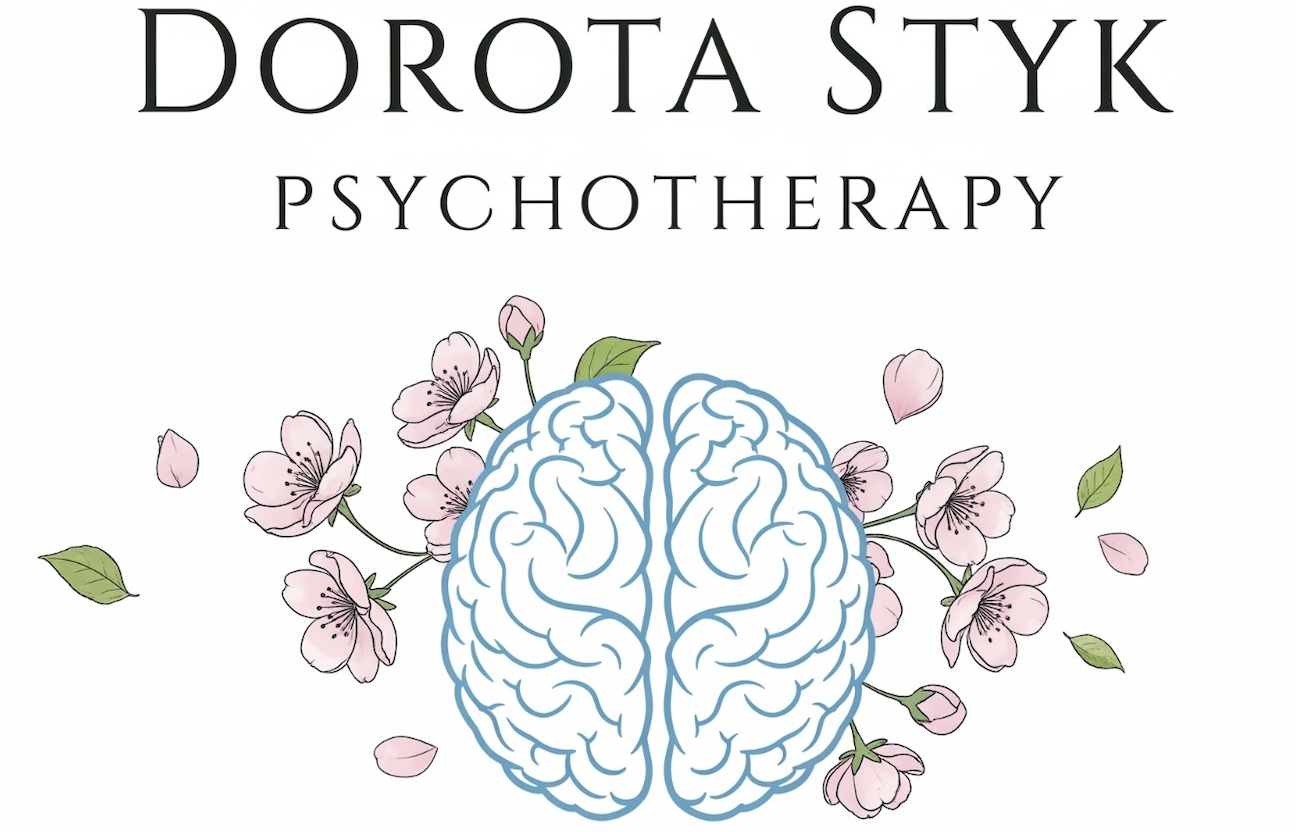
Wpływ traumy z relacji narcystycznej na procesy poznawcze: analiza oparta na dowodach naukowych.
Trauma wyniesiona z relacji narcystycznej jest poważnym stresorem psychologicznym o trwałych konsekwencjach dla funkcjonowania poznawczego (Charlie Health, 2025; Bernard i in., 2017). Niniejszy artykuł syntetyzuje badania na temat tego, jak narcystyczne nadużycia wpływają na takie obszary jak uwaga, pamięć i funkcje wykonawcze. Wykorzystując perspektywy neurobiologiczną i kliniczną, analiza podkreśla, jak taktyki manipulacji – włączając gaslighting i wywoływanie dysonansu poznawczego – indukują zmiany w strukturze i funkcji mózgu. Osoby, które doświadczyły takich relacji, powszechnie doświadczają obniżonej szybkości przetwarzania informacji, dysfunkcji wykonawczych i zaburzeń pamięci autobiograficznej, co często przypomina złożony zespół stresu pourazowego (complex PTSD, C-PTSD) (Ford & Courtois, 2013). Skuteczne leczenie kładzie nacisk na interwencje oparte na zrozumieniu traumy, które obejmują zarówno powrót do zdrowia psychicznego, jak i neuropoznawczego.
Wprowadzenie: Nadużycia narcystyczne i wpływ na poznanie
Narcystyczne nadużycia obejmują utrwaloną manipulację, eksploatację i degradację emocjonalną, mające na celu ustanowienie władzy i kontroli w związku (Shalchian, 2022; Lorecka, 2023). Relacje te często charakteryzują się cyklami idealizacji, dewaluacji i podważania rzeczywistości, tworząc „traumatyczne więzi” – uzależniające przywiązanie do osoby stosującej przemoc (Lorecka, 2023). Wpływ na funkcje poznawcze wykracza poza typowy dystres związany z relacją, manifestując się jako „mgła mózgowa” lub uczucie utraty zdrowia psychicznego (Charlie Health, 2025; Psychology Today, 2021). Ten artykuł bada dowody łączące traumę z relacji narcystycznych z deficytami w zakresie uwagi, pamięci i funkcji wykonawczych.
Ramy teoretyczne: Nadużycia a obszary poznawcze
Taktyki manipulacyjne, takie jak gaslighting (zmuszanie do wątpienia we własną rzeczywistość), love bombing (bombardowanie miłością), przerywane wzmocnienie i wywoływanie dysonansu poznawczego, systematycznie niszczą poczucie bezpieczeństwa poznawczego – zaufanie do własnych spostrzeżeń (Psychology Today, 2021). Przewlekła ekspozycja aktywuje systemy reakcji na zagrożenie w mózgu, przekierowując zasoby z wyższych funkcji poznawczych na przetrwanie (Bick & Nelson, 2016; Teicher i in., 2016). Ten wzorzec negatywnie wpływa na funkcje wykonawcze, pamięć i uwagę, co wykazano zarówno w przypadku traumy o początku w dzieciństwie, jak i w wieku dorosłym (Bick & Nelson, 2016).
Uwaga i koncentracja: Hiperczujność i wyczerpanie
Osoby, które doświadczyły narcystycznej przemocy, często zmagają się z uwagą i koncentracją z powodu hiperczujności wymaganej w toksycznych relacjach (Carr i in., 2013; Charlie Health, 2025). Zwiększona czujność wyczerpuje zasoby poznawcze, upośledzając skupienie na codziennych zadaniach. Badania pokazują, że przewlekły stres dereguluje oś HPA, podnosi poziom kortyzolu i upośledza funkcję kory przedczołowej – kluczowej dla regulacji uwagi (Bernard i in., 2017; Teicher i in., 2016). Skutkuje to psychicznym wyczerpaniem i rozpraszalnością, co wpływa na życie codzienne i zawodowe.
Systemy pamięci: Gaslighting i pamięć autobiograficzna
Gaslighting celuje w pamięć autobiograficzną, wywołując zamęt co do źródła i treści osobistych doświadczeń (Psychology Today, 2021; Charlie Health, 2025). Ofiary polegają niemal całkowicie na sprawcy dla walidacji własnych doświadczeń, przy czym łączność między hipokampem a korą przedczołową jest zaburzona, co skutkuje utrwaloną niepewnością (Teicher i in., 2016; Cook i in., 2003). Pamięć robocza również pogarsza się pod stałym obciążeniem poznawczym, co odzwierciedla objawy obserwowane w PTSD (Ford & Courtois, 2013).
Funkcje wykonawcze: Podejmowanie decyzji i elastyczność
Funkcje wykonawcze – podejmowanie decyzji, planowanie i regulacja zachowania – są szczególnie wrażliwe na przewlekłą traumę interpersonalną (Ford & Courtois, 2013). Zwiększona ekspozycja na kortyzol uszkadza połączenia w korze przedczołowej, a badania neuroobrazowe wykazują zmniejszoną aktywację tej okolicy (Teicher i in., 2016). Osoby po takich doświadczeniach mierzą się z problemami z podejmowaniem decyzji, obniżoną zdolnością do planowania i sztywnością myślenia, przy czym wzorce te często utrzymują się po zakończeniu relacji.
Mechanizmy neurobiologiczne: Stres i zmiany w mózgu
Zaburzenia poznawcze wynikające z traumy narcystycznej odzwierciedlają zmiany neurobiologiczne. Przewlekły stres zakłóca regulację osi HPA, prowadząc do przedłużonego uwalniania kortyzolu, który uszkadza ośrodki odpowiedzialne za pamięć, funkcje wykonawcze i regulację emocji (Bernard i in., 2017; Bick & Nelson, 2016). Obrazowanie mózgu wskazuje na zmniejszoną objętość hipokampa i kory przedczołowej, co koreluje z deficytami pamięci werbalnej i funkcji wykonawczych (Teicher i in., 2016). Czas trwania i moment ekspozycji na traumę pozwalają przewidywać jej nasilenie (Carr i in., 2013).
Konsekwencje psychologiczne i współwystępowanie
Pogorszenie funkcji poznawczych w wyniku narcystycznych nadużyć zwykle współwystępuje z depresją, lękiem i złożonym zespołem stresu pourazowego (C-PTSD) (Yehuda i in., 2015; Ford & Courtois, 2013). Depresja nasila deficyty wykonawcze i pamięciowe, podczas gdy lęk pochłania zasoby poznawcze poprzez ruminacje i zamartwianie się (Veltman & Browne, 2001). Złożony PTSD, związany z przedłużoną traumą, powoduje dysregulację afektywną i poważne trudności poznawcze (Ford & Courtois, 2013; Cook i in., 2003).
Powrót do zdrowia i interwencje terapeutyczne
Terapia oparta na traumie
Dowody naukowe wspierają stosowanie skoncentrowanej na traumie terapii poznawczo-behawioralnej (TF-CBT), terapii EMDR oraz terapii dialektyczno-behawioralnej (DBT) w przypadku poznawczych następstw narcystycznych nadużyć (Ford & Courtois, 2013). Terapia remediacji poznawczej buduje uwagę, pamięć i funkcje wykonawcze poprzez ustrukturyzowane ćwiczenia i strategie kompensacyjne (Bick & Nelson, 2016).
Neuroplastyczność i powrót do zdrowia
Mózg dorosłego człowieka zachowuje plastyczność. Ukierunkowany trening poznawczy i mindfulness promują regenerację w obszarach dotkniętych traumą. Mindfulness zwiększa istotę szarą kory przedczołowej, przeciwdziałając skutkom stresu i wzmacniając kontrolę regulacyjną (Teicher i in., 2016).
Wsparcie społeczne i środowiskowe
Silne wsparcie społeczne i bezpieczne środowisko są kluczowe dla powrotu do zdrowia (Lorecka, 2023). Walidacja doświadczeń i bezpieczne przywiązanie pomagają przywrócić testowanie rzeczywistości. Ustrukturyzowane rutyny i zewnętrzne pomoce, takie jak przypomnienia i kalendarze, redukują obciążenie poznawcze i wspierają stopniową niezależność.
Podsumowanie
Trauma z relacji narcystycznej powoduje znaczące upośledzenia uwagi, pamięci i funkcji wykonawczych poprzez psychologiczną manipulację i neurobiologiczne reakcje na stres (Charlie Health, 2025; Ford & Courtois, 2013). Powrót do zdrowia zależy od terapii opartej na traumie, rehabilitacji poznawczej, praktyki mindfulness i silnego wsparcia społecznego. Klinicyści powinni validować poznawcze zmagania osób ocalałych, rutynowo oceniać funkcjonowanie i uważnie adaptować plany terapeutyczne. Dzięki terapii opartej na dowodach i wsparciu, większość osób jest w stanie odzyskać sprawność poznawczą i psychiczną.
Bibliografia
American Psychiatric Association. (2013). Diagnostic and statistical manual of mental disorders (5th ed.).
Bernard, K., Frost, A., Bennett, C. B., & Lindhiem, O. (2017). Maltreatment and diurnal cortisol regulation: A meta-analysis. Psychoneuroendocrinology, 78, 57–67.
Bick, J., & Nelson, C. A. (2016). Early adverse experiences and the developing brain. Neuropsychopharmacology, 41(1), 177–196.
Carr, C. P., Martins, C. M. S., Stingel, A. M., Lemgruber, V. B., & Juruena, M. F. (2013). The role of early life stress in adult psychiatric disorders: A systematic review according to childhood trauma subtypes. The Journal of Nervous and Mental Disease, 201(12), 1007–1020.
Charlie Health. (2025). The long-term effects of narcissistic abuse.
Cook, A., Spinazzola, J., Ford, J., Lanktree, C., Blaustein, M., Cloitre, M., … & van der Kolk, B. (2003). Complex trauma in children and adolescents. Psychiatric Annals, 35(5), 390–398.
Ford, J. D., & Courtois, C. A. (2013). Treating complex traumatic stress disorders in children and adolescents: Scientific foundations and therapeutic models. Guilford Press.
Lorecka, K. (2023). Traumatyczna więź – relacja z narcyzem ukrytym [Traumatic bond – relationship with a hidden narcissist].
Simply Psychology. (n.d.). How does narcissistic abuse affect future relationships?
Psychology Today. (2021). Narcissists, relationships, and cognitive dissonance.
Teicher, M. H., Samson, J. A., Anderson, C. M., & Ohashi, K. (2016). The effects of childhood maltreatment on brain structure, function and connectivity. Nature Reviews Neuroscience, 17(10), 652–666.
Veltman, M. W. M., & Browne, K. D. (2001). Three decades of child maltreatment research: Implications for the school years. Trauma, Violence, & Abuse, 2(3), 215–239.
Yehuda, R., Hoge, C. W., McFarlane, A. C., Vermetten, E., Lanius, R. A., Nievergelt, C. M., … & Hyman, S. E. (2015). Post-traumatic stress disorder. Nature Reviews Disease Primers, 1(1), 15057.

Jako doktorantka w dziedzinie obliczeniowej neuronauki poznawczej i psychologii na Birkbeck, University of London, specjalizuję się w złożonych zależnościach między zdrowiem psychicznym a funkcjami poznawczymi. Moja praktyka opiera się na solidnych podstawach akademickich z psychologii i neuronauki, uzupełnionych kwalifikacjami z zakresu poradnictwa i psychoterapii (CPCAB, akredytowane przez NCPS).
Moje badania koncentrują się na opracowywaniu innowacyjnego, spersonalizowanego treningu pamięci roboczej w formie gry, z wykorzystaniem zaawansowanych metod obliczeniowych, uczenia maszynowego i oceny psychologicznej. Praca ta bezpośrednio kształtuje mój integracyjny, oparty na dowodach naukowych подход do terapii i rehabilitacji neuropoznawczej. Pomagam klientom zrozumieć, że schorzenia takie jak zaburzenia nastroju, lęk i trauma mogą wpływać na zdolności poznawcze, podczas gdy upośledzenia funkcji poznawczych często przyczyniają się do cierpienia emocjonalnego. Pracując nad tymi elementami łącznie, dążymy do poprawy ogólnej jakości życia.
Zobowiązuję się do udostępniania strategii opartych na dowodach naukowych osobom borykającym się z wyzwaniami poznawczymi — od zaburzeń neurorozwojowych przez urazy mózgu po skutki starzenia. Dzięki mojemu blogowi dzielę się spostrzeżeniami z mojej pracy, łącząc przełomowe badania z rzeczywistym wpływem.
Akredytacje i członkostwa:
Jestem akredytowany przez British Psychological Society (BPS) i jestem członkiem British Neuroscience Association (BNA), Experimental Psychology Society (EPS), British Association for Cognitive Neuroscience (BACN), American Psychological Association (APA) oraz Canadian Psychological Association (CPA). Jestem także członkiem Expert Witness Institute (EWI), gdzie rozwijam specjalistyczną ścieżkę w zakresie dostarczania dowodów psychologicznych dla postępowań prawnych.
Stale poszerzając swoją wiedzę w tych dyscyplinach, zapewniam, że moja praktyka i badania pozostają rzetelne, etyczne i aktualne, i jestem dedicated to przekształcania postępu naukowego w praktyczne korzyści dla społeczności, którym służę.
Więcej o moich kwalifikacjach możesz przeczytać na klikajac tutaj
Dorota Styk



